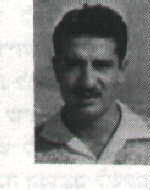Son of Morris and Rosa. Was born on November 1, 1945 in Cairo, Egypt, where he completed six elementary school classes. In the wake of the Sinai Campaign, the situation of the Jews of Egypt worsened and at the beginning of 1957 the family succeeded in leaving Cairo for Europe and from there to Israel. The family settled in Dimona and the father began working as a bookkeeper at the Dead Sea Works. Although Shlomo did not know Hebrew, he was admitted to seventh grade in an elementary school for his talents. He was well acclimated among students who had gathered in Dimona from various postcards and was diligent and diligent in his studies. There was nothing difficult for him and he soon learned the language. He was known for his good nature, his Lev and friendship. After graduating from elementary school, he began studying at the A Comprehensive High School in Be’er Sheva and excelled as an excellent student especially in the field of mathematics. Therefore, he was sent on behalf of his school to a special camp for “Science-Seeking Youth” at the Weizmann Institute. During the summer vacation he came to his father’s aid to support the family and worked in the administrative department of the Dead Sea Works. Part of his salary saved high school and university studies. Shlomo was drafted into the IDF in mid-January 1966. As part of the program to promote soldiers from Middle Eastern countries, the IDF allowed Shlomo to move to Jerusalem to prepare for academic studies at the Hebrew University after a one-year service period. He was simple in his ways, modest and built his future with the recognition that “no one owes me anything and I owe nothing to anyone,” as he said. After completing the preparatory course, he was accepted as a full-time student at the university and chose two departments: philosophy and statistics. He undertook to complete his years of military service in the framework of the academic reserve. In 1969, after two years of study in the statistics department, he left the teaching and began working at the Central Bureau of Statistics in Jerusalem, in the Methodology Department, where he was a professional assistant. Shlomo specialized in the analysis of seasonal statistical series in the fields of agriculture, and Shlomo saw Shlomo as a profession of life, but he saw philosophy as a means of expanding his horizons and horizons. Through his philosophy, he sought Hadar To abstract spiritual happiness, but to the material means on which he based this happiness, derived from the study of statistics, he was able to make friends with every man, and to be full of his candor, his candor was accompanied by a tendency to debate and philosophize. In his discussions, he also warned about discrimination against Sephardi Jews and was particularly concerned about their education and was especially sensitive to the problem of the various communities in the State of Israel. Shortly after he began working at the Central Bureau of Statistics, his father died and then told his friends that happiness had always left him. He loved his father so much. After his father’s death, he would phone his mother every day and spend all his weekends with him in Dimona. He bought an apartment in Dimona and determined the date of his marriage after the year of mourning for his father’s death. At the end of 1969 he was called up for reserve service – a special volunteer service for the academic reserve; These reservists were destined for strongholds in the Canal Zone. In his last letter, he described the high morale of his colleagues and noted that the members’ instinct to live leads to a desire to “live at all costs” and not be harmed. “We do not talk about fighting spirit and sacrifice, but how we should not be hurt, and every person with experience speaks with great tension of his fears in timeThe bombardment – – – At night, when you are in the position, there is a long time to reflect, to think about things in the world, with all the slogans, ‘even on land’ or ‘land for peace’ – – What is interesting is that despite the special atmosphere that prevails there is life Normal – – – – and it’s easy to sit in the rear, not get excited and live a regular life. It is precisely here, “wrote Shlomo,” that I found friendship and friendship that I might never have met. Strangers are made within an hour the best friends in the world. Mutual help and all the Yaffa concepts come true here. “On December 25, 1969, when he was standing in the observation post in the central sector, a fire was suddenly opened and Shlomo was hit and fell, and was brought to rest in the Dimona cemetery. To the extent that Shlomo was a source of pride for the city, his name was read about the cultural room in the students’ housing on Mount Scopus, in which Shlomo lived, and on behalf of the municipality of Dimona, In light of a pamphlet entitled “In Memory of Them”, which includes the story of the life and story of the Dimona children who fell in Israel’s wars, in the book “Nizkor” published by the University The Hebrew University of Jerusalem and the Students’ Union, which was edited by Yehudah Ha-Ezrachi, was mentioned and recounted the story of his life and death, and on the first anniversary of his fall, the Central Bureau of Statistics published a booklet in his memory that was prepared by his friends. Technical Studies on Seasonality and Trends in Israel 1956-1969 – a topic on which he worked in his professional work. “A special section was dedicated to him in the book” In Memory and Remind “- to the graduates of the Be’er Sheva Comprehensive High School
